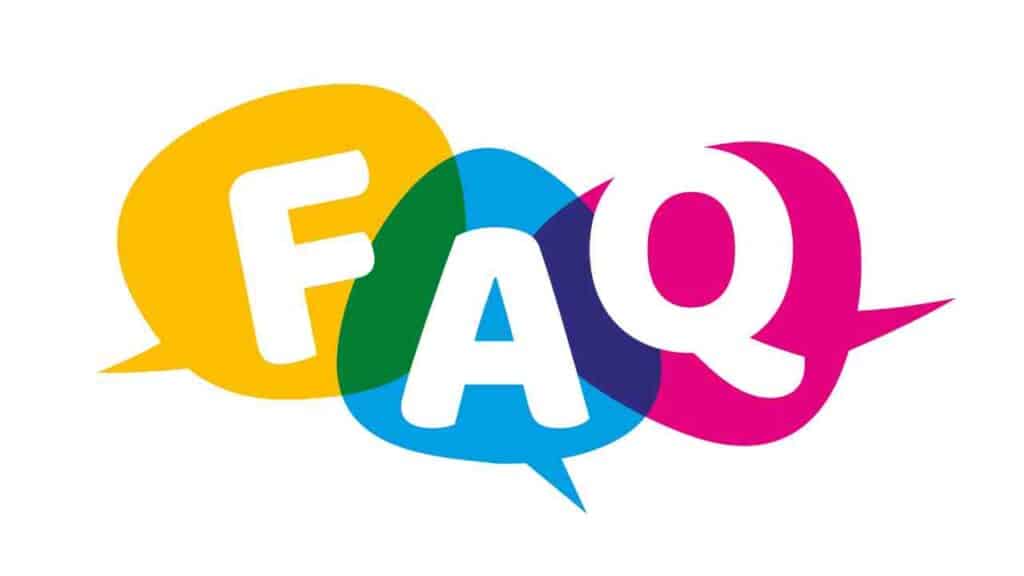Improving Sales Efficiency with CRM

Customer Relationship Management (CRM) systems have become an essential tool for businesses of all sizes. By effectively managing customer data and streamlining sales processes, CRM software can significantly improve sales efficiency. In this article, we will explore the benefits of using CRM systems and how they can help businesses achieve their sales goals.
What is CRM?
CRM stands for Customer Relationship Management. It is a technology that helps businesses manage their interactions and relationships with customers. CRM systems provide a centralized database where businesses can store and access customer information, track sales activities, and automate various sales processes.
CRM software allows businesses to gather and analyze customer data, such as contact information, purchase history, and communication preferences. This data can then be used to personalize sales and marketing efforts, improve customer service, and make data-driven decisions.
The Benefits of CRM for Sales Efficiency
Implementing a CRM system can have a significant impact on sales efficiency. Here are some key benefits:
1. Centralized Customer Data
A CRM system provides a centralized database where businesses can store all customer-related information. This eliminates the need for multiple spreadsheets, sticky notes, and manual data entry. With all customer data in one place, sales teams can easily access and update information, ensuring that everyone is working with the most up-to-date data.
Having centralized customer data also enables businesses to gain a holistic view of their customers. This allows for better segmentation and targeting, as well as more personalized sales and marketing efforts.
2. Streamlined Sales Processes
CRM systems offer various automation features that can streamline sales processes. For example, businesses can automate lead generation, lead nurturing, and follow-up activities. This reduces manual work and allows sales teams to focus on high-value tasks, such as closing deals and building relationships with customers.
By automating repetitive tasks, businesses can also ensure consistency in their sales processes. This leads to improved efficiency and a higher likelihood of success in converting leads into customers.
3. Improved Sales Forecasting
CRM systems provide businesses with valuable insights into their sales pipeline. By tracking and analyzing sales activities, businesses can accurately forecast future sales and identify potential bottlenecks in the sales process.
With accurate sales forecasting, businesses can make informed decisions about resource allocation, goal setting, and sales strategies. This helps optimize sales performance and ensures that sales teams are working towards achievable targets.
4. Enhanced Collaboration and Communication
A CRM system facilitates collaboration and communication among sales teams. Sales representatives can easily share customer information, notes, and updates, ensuring that everyone is on the same page.
CRM systems also enable better communication with customers. Businesses can track customer interactions, such as emails, calls, and meetings, within the CRM system. This allows sales teams to provide timely and personalized responses, improving customer satisfaction and loyalty.
Case Study: XYZ Company
XYZ Company, a small software development firm, implemented a CRM system to improve their sales efficiency. Prior to using CRM, their sales team relied on spreadsheets and manual processes to manage customer data and sales activities.
After implementing the CRM system, XYZ Company experienced several benefits:
- Centralized customer data: All customer information was stored in one place, making it easily accessible to the sales team.
- Streamlined sales processes: Lead generation and follow-up activities were automated, allowing the sales team to focus on closing deals.
- Improved sales forecasting: The CRM system provided insights into the sales pipeline, enabling XYZ Company to accurately forecast future sales.
- Enhanced collaboration and communication: Sales representatives could easily share customer information and updates, improving teamwork and customer communication.
As a result of these improvements, XYZ Company saw a 20% increase in sales revenue within the first year of implementing the CRM system.
Statistics on CRM and Sales Efficiency
Here are some statistics that highlight the impact of CRM on sales efficiency:
- Companies that use CRM software can increase their sales by up to 29%. (Source: Salesforce)
- CRM systems can improve sales productivity by up to 34%. (Source: Nucleus Research)
- Businesses that use CRM software experience a 65% increase in sales quotas achieved. (Source: Innoppl Technologies)
- CRM systems can increase customer retention rates by up to 27%. (Source: Capterra)
Implementing a CRM system can significantly improve sales efficiency for businesses. By centralizing customer data, streamlining sales processes, improving sales forecasting, and enhancing collaboration and communication, CRM software empowers sales teams to work more effectively and achieve their sales goals.
With the numerous benefits and proven success stories, it is clear that CRM is a valuable tool for businesses of all sizes. If you’re looking to improve your sales efficiency, consider implementing a CRM system like SaasExpert.ca – Your All-In-One Sales and Marketing Platform for small businesses, agency owners, and marketers.
Learn more about “Modernizing Sales Processes with CRM” right here.
Frequently asked questions about Improving Sales Efficiency with CRM.

1. What exactly does “Improving Sales Efficiency with CRM” mean? 🤔
“Improving Sales Efficiency with CRM” essentially refers to leveraging Customer Relationship Management tools to streamline and optimize your sales processes. Let’s break this down. 📘
Sales efficiency is about maximizing your sales results while minimizing the resources (like time, money, and effort) expended. Think of it as getting the best bang for your buck! 💥
A CRM system is a technology that centralizes customer data, tracks interactions, automates tasks, and provides valuable insights. By integrating CRM into your sales process, you can:
Reduce manual data entry 📝, freeing up salespeople to do what they do best – sell!
Have instant access to customer histories and preferences 📚, allowing for more tailored and effective interactions.
Automate follow-ups and reminders 📅, ensuring no leads fall through the cracks.
So, when we talk about “Improving Sales Efficiency with CRM,” we’re discussing the transformative potential of CRM tools to make your sales processes smoother, smarter, and more successful. 🚀
2. How does CRM automation contribute to sales efficiency? ⚙️
Automation is like the magic wand 🪄 of the CRM world! At its core, automation involves setting up processes to run automatically without manual intervention. Here’s why that’s a game-changer for sales:
Time-saving: Manually logging calls, sending follow-up emails, or entering data can consume a significant chunk of a salesperson’s day. CRM automation handles these tasks seamlessly in the background. This means your sales team can spend more time engaging with prospects and closing deals.
Consistency: Automated workflows ensure every lead and customer receives the same high level of attention. For instance, an automated welcome email series can make new customers feel valued right from the start.
Personalization: Contrary to what you might think, automation can actually make your interactions more personalized. By segmenting your contact list based on behavior or demographics, CRM can send tailored content or offers that resonate better with individual segments.
Error reduction: Let’s face it, we’re all human! 🙃 Manual processes can introduce errors, from forgotten follow-ups to mistyped emails. Automation minimizes such slip-ups, ensuring a more consistent and professional brand image.
In essence, CRM automation supercharges your sales process. It takes repetitive tasks off your plate and enhances accuracy and personalization. Efficiency, in this context, isn’t just about speed but also about improving the quality and consistency of interactions. 🌟
3. Can CRM insights really make a difference in my sales strategy? 🧐
Absolutely! Think of CRM insights as a compass 🧭 guiding your sales ship through the vast ocean of data. These insights can fundamentally reshape your sales strategy in several ways:
Understanding customer behavior: CRM tools can track every interaction a customer has with your brand. This gives you a holistic view of their journey, helping identify what works and what doesn’t.
Sales forecasting: Based on historical data, CRM can help predict future sales trends. This can be invaluable for inventory management, budgeting, and strategic planning.
Performance analytics: Wondering how each sales rep is performing? Or which marketing campaign is driving the most sales? CRM provides granular data, allowing you to identify strengths, weaknesses, and areas of opportunity.
Enhanced segmentation: CRM insights can identify different customer segments and their preferences. This can inform more targeted and effective sales campaigns.
In the era of data-driven decision-making, flying blind is not an option. CRM insights provide the clarity and direction you need to refine your sales strategy, ensuring it’s both efficient and effective. Knowledge is power, after all! 💡
4. How will a CRM system affect the daily routine of my sales team? 🌅
Integrating a CRM system is like introducing a new team member. There’s an initial period of acclimatization, followed by a synergistic collaboration. Here’s how a typical day might change:
Morning: Instead of sifting through notes or spreadsheets, your sales rep logs into the CRM dashboard to get a snapshot 🖼️ of their day. They see scheduled calls, tasks, follow-ups, and key performance metrics.
Throughout the day: As they interact with leads and customers, the CRM automatically logs these interactions. No need to manually input data. The system might also suggest cross-sell or up-sell opportunities based on customer history.
End of the day: Your sales rep can analyze their performance, see which leads need further nurturing, and plan for the next day. The CRM system might even provide insights or recommendations based on daily activities.
Over time, a CRM system becomes an integral part of your sales team’s daily routine, making their lives easier and their efforts more productive. Think of it as their sidekick, always ready to assist! 🦸♂️
5. How do I ensure my sales team adopts the new CRM system enthusiastically? 🎉
Ah, the age-old challenge of change management! Humans are creatures of habit, and introducing a new system can meet with resistance. However, with the right approach, you can turn skeptics into advocates:
Involve them early: Before choosing a CRM, solicit feedback from your sales team. Understand their pain points and needs. When they feel involved, they’re more likely to embrace the change.
Training: Offer comprehensive training sessions. Ensure everyone feels comfortable using the system. Remember, confidence breeds enthusiasm!
Highlight benefits: Emphasize how CRM will make their job easier and improve their sales performance. Real-world success stories or demos can be impactful.
Open feedback channels: Encourage your team to share feedback. Address concerns and iterate based on their experiences.
Celebrate successes: When you hit milestones, like a surge in sales or a successful campaign driven by CRM insights, celebrate! Positive reinforcement goes a long way.
Remember, CRM isn’t just a tool but a mindset shift towards a more organized, data-driven, and efficient sales approach. And who wouldn’t want to be part of that exciting journey? 🌈






